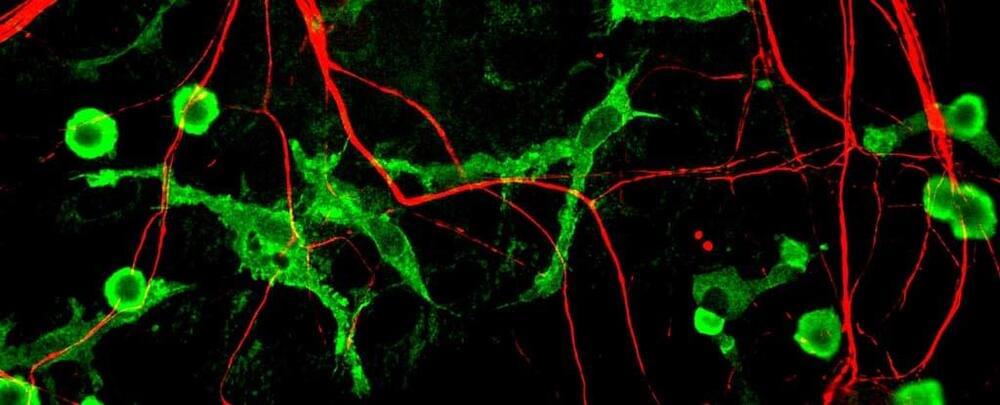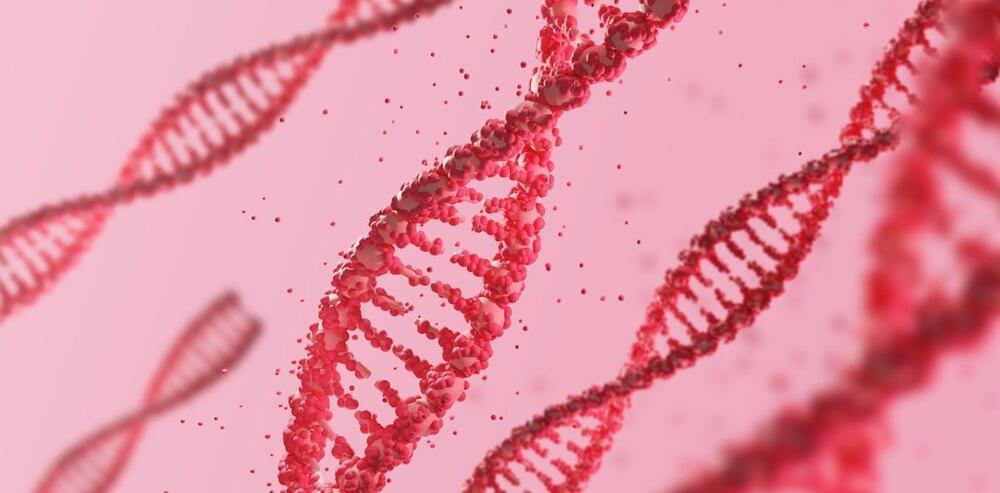NOTE on Aut-generated English caption: in 1:08–1:12, auto-generated English caption says “Inner Dilemma” but actually it is “Yoneda lemma”(Thanks Junko and M…
Category: neuroscience – Page 450
Dennett’s Multiple Drafts Theory of Consciousness
According to the philosopher and cognitive scientist Daniel Dennett, a conscious state is a brain state that is spread out in both space and time. It is spread out in the brain across multiple instances of what Dennett calls “content fixations.” These content fixations are the “multiple drafts” in the theory’s name. Each of these drafts compete for domination in the cognitive system. This domination is what Dennett calls “fame in the brain.” Read more about it here: http://www.scholarpedia.org/article/M…
#philosophyofmind

Exercise Reverses Specific Age-Related Brain Changes In Mice
Regular physical activity can offer major rejuvenation powers, helping people retain strength as they age while buffering against illness and injury. As a growing body of research suggests, this includes valuable protection throughout our bodies – including our brains.
According to a new study by researchers from the University of Queensland in Australia, exercise can slow or even prevent cognitive decline in mice, with a “profound and selective effect” on certain types of brain cell.
On top of demonstrating such an intriguing phenomenon in a fellow mammal, the new study also sheds light on how this effect is triggered inside the brains of physically active mice.

Scientists Pinpoint Main Cause of Sensory Hypersensitivity in Autism
Sensory hypersensitivity in mice with the Grin2b gene mutation found in patients is related to hyperactivity of the anterior cingulate cortex (ACC) and hyperconnectivity between the ACC and other brain regions. Credit: Institute for Basic Science.
Director Kim Eunjoon states, “This new research demonstrates the involvement of the anterior cingulate cortex (ACC), which has been known for its deep association with cognitive and social functions, in sensory hypersensitivity in autism.”
The hyperactivity of the ACC was also associated with the enhanced functional connectivity between the ACC and other brain areas. It is believed both hyperactivity and the hyperconnectivity of the ACC with various other brain regions are involved with sensory hypersensitivity in Grin2b-mutant mice.

New Research Reveals That Exercise Can Rewire Brains and Erase Traumatic Memories
Enhanced neuron growth in the hippocampus, achieved through exercise or genetic methods, aids mice in forgetting strong, maladaptive memories, offering potential for new treatments for PTSD or drug addiction.
Researchers at the University of Toronto, Canada, and Kyushu University, Japan, discovered that enhancing neuron production and subsequently altering neural connections in the hippocampus—through exercise or genetic intervention—enables mice to forget memories associated with trauma or drugs. The findings, reported in the journal Molecular Psychiatry, could offer a new approach to treating mental health conditions like post-traumatic stress disorder (PTSD) or drug addiction.
PTSD is a mental health condition that can be triggered by experiencing or seeing a traumatic event, such as a natural disaster, serious accident, or attack. Worldwide, around 3.9% of the general population has PTSD, with symptoms including vivid flashbacks and avoidance behaviors, such as staying away from places or pushing away people that remind them of the traumatic event.

New study shows urolithin A can improve treatment of Alzheimer’s
The research team found that long-term urolithin A treatment in mice significantly improved their learning, memory and olfactory function. The treatment also reduced amyloid beta (Aβ) and tau pathologies and improved cellular lysosomal function [1].
The researchers’ findings also suggest that urolithin A is as effective as NAD in promoting mitophagy, positioning it as a potential therapeutic agent for Alzheimer’s disease.
“Our study on mouse models with AD shows that urolithin A, which is a naturally occurring substance in pomegranates, can alleviate memory problems and other consequences of dementia,” says Bohr. “Even though the study was conducted on mouse models, the prospects are positive. So far, research has shown promising results for the substance in the muscles, and clinical trials on humans are being planned [3].”



Training Transhumanists at Oxford University
Those who know Oxford University for its literary luminaries might be surprised to learn that some of the most important reflections on emerging technologies come from its hallowed halls. While the leading tech innovators in Silicon Valley capture imaginations with their bold visions of future singularities, mind-machine melding, and digital immortality by 2045, they rarely engage as deeply with the philosophical issues surrounding such developments as their like-minded scholars over the pond. This essay will briefly highlight some of the key contributions of Oxford University’s professors Nick Bostrom, Anders Sandberg, and Julian Savulescu to the transhumanist movement. It will also show how this movement’s focus on radical autonomy in biotechnical enhancements shapes the wider global bioethical conversation.
As the lead author of the Transhumanist FAQ, Bostrom provides the closest the movement has to an institutional catechism. He is, in a sense, the Ratzinger of Transhumanism. The first paragraph of the seminal text emphasizes the evolutionary vision of his school. Transhumanism’s incessant pursuit of radical technological transformation is “based on the premise that the human species in its current form does not represent the end of our development but rather a comparatively early phase.” Current humans are but one intriguing yet greatly improvable iteration of human existence. Think of the first iPhone and how unattractive 2007’s most cutting-edge technology is in 2024.
In particular, transhumanists encourage radical physical, cognitive, mood, moral, and lifespan enhancements. The movement seeks to defeat humanity’s perennial enemies of aging, sickness, suffering, and death. Bostrom recognizes that he is facing the same foes as Christianity and other traditional religions. Yet he is confident that Transhumanism, through science and technology, will be far more successful than outdated superstitions. Biotechnological advances are more reliable for this worldly benefit than religion’s promises of some mysterious next life. Transhumanists claim no need for “supernatural powers or divine intervention” in their avowedly “naturalistic outlook” since they rely instead on “rational thinking and empiricism” and “continued scientific, technological, economic, and human development.” Nonetheless, Bostrom and his companions recognize that not all technology is created equal.